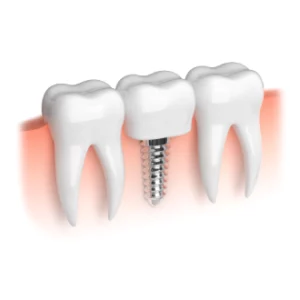Request Appointment
Kissimmee

New Patients Only: (407) 635-1196

All Other Callers: (407) 932-2273
Orlando

New Patients Only: (407) 606-7209

All Other Callers: (407) 601-4206
Saturday By Appointment
Call Us Now

Dental implants offer a permanent solution for replacing missing teeth and restoring smiles. However, "How long does a dental implant procedure take?" is a common question among individuals considering this transformative dental treatment. Understanding the timeline and phases involved in the process is crucial for patients seeking to replace missing teeth and achieve optimal oral health.
So, let us look into the intricacies of the dental implant procedure, shedding light on the factors influencing its duration and providing insights for those exploring this innovative dental solution.
Dental implantation involves several phases, each essential for achieving successful outcomes. From the first appointment to putting in the implant, everything is carefully planned to make sure things go well and patients are happy with the outcome.
Several factors influence the duration of the dental implant procedure:

The initial consultation serves as a foundation for the entire treatment process. Patients and dentists collaborate to develop a treatment plan tailored to the patient's unique needs and preferences. Diagnostic tests, including X-rays and CT scans, help assess bone density, gum health, and anatomical structures, guiding treatment decisions.
The surgical phase encompasses various procedures aimed at preparing the oral environment for implant placement. Tooth extractions, if necessary, are performed to create space for the implants. In cases of inadequate bone volume, bone grafts or sinus lifts may be recommended to augment bone density and support implant stability.
After surgery, patients enter a critical phase of healing and recovery. It is essential to meticulously follow post-operative care instructions provided by the dental team. Patients may experience swelling, discomfort, and minor bleeding in the days following surgery. However, adherence to prescribed medications and dietary guidelines can facilitate a smooth recovery process.
The final phase involves the precise placement of dental implants into the jawbone. Using advanced techniques and surgical guides, dentists ensure optimal positioning and alignment of the implants. The duration of this phase varies depending on the complexity of the case and the number of implants required. Patients are typically placed under local anesthesia to minimize discomfort during the procedure.
The timeline of a dental implant procedure varies based on several factors, including the number of implants, the need for additional surgeries, and individual healing capacity. While the process may span several months, the long-term benefits of dental implants, including improved oral function and enhanced aesthetics, make it a worthwhile investment in one's oral health and quality of life.
When people wonder, "How long does a dental implant procedure take?" you can see that many things affect the answer. But it always begins with an evaluation. Starting treatment early can shorten the overall time.
Ready to transform your smile? Contact Avalon Commons Dental Care in Orlando, FL, to book a consultation with our experienced implant dentist. Discover the detailed steps and timelines for achieving a brighter, healthier smile. New Patients: Call (407) 606-7209. Current Patients: Reach us at (407) 601-4206.
Dental implant procedures are performed under local anesthesia to ensure patient comfort. While some discomfort and soreness may occur during the recovery period, it is manageable with prescribed medications.
The time period of the dental implant process varies based on individual factors and treatment complexity. On average, it may take several months to a year to complete the entire treatment, including the healing and restoration phases.
Dental implants are a feasible option for many individuals with missing teeth, but candidacy depends on factors such as oral health, bone density, and overall medical history. A detailed evaluation by a dental professional is necessary to determine suitability for treatment.
Dental implants have high success rates and can last lifelong with proper care and maintenance. Regular dental visits, maintaining oral hygiene practices, and avoiding habits like smoking contribute to the longevity of dental implants.
Dental insurance coverage for dental implant procedures varies depending on the individual's insurance plan. It is suggested that you consult with the insurance provider to understand coverage options and potential out-of-pocket expenses.